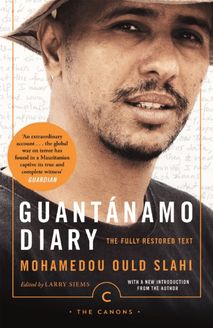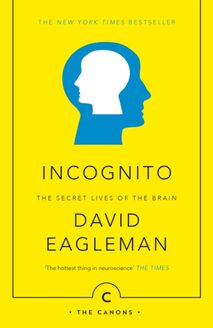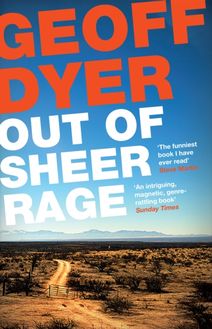-
 Univers
Univers
-
 Ebooks
Ebooks
-
 Livres audio
Livres audio
-
 Presse
Presse
-
 Podcasts
Podcasts
-
 BD
BD
-
 Documents
Documents
-
- Cours
- Révisions
- Ressources pédagogiques
- Sciences de l’éducation
- Manuels scolaires
- Langues
- Travaux de classe
- Annales de BEP
- Etudes supérieures
- Maternelle et primaire
- Fiches de lecture
- Orientation scolaire
- Méthodologie
- Corrigés de devoir
- Annales d’examens et concours
- Annales du bac
- Annales du brevet
- Rapports de stage
La lecture à portée de main
Vous pourrez modifier la taille du texte de cet ouvrage
Découvre YouScribe en t'inscrivant gratuitement
Je m'inscrisDécouvre YouScribe en t'inscrivant gratuitement
Je m'inscrisEn savoir plus
Vous pourrez modifier la taille du texte de cet ouvrage
En savoir plus

Description
Sujets
Informations
| Publié par | Canongate Books |
| Date de parution | 03 mai 2018 |
| Nombre de lectures | 0 |
| EAN13 | 9781786892065 |
| Langue | English |
Informations légales : prix de location à la page 0,0400€. Cette information est donnée uniquement à titre indicatif conformément à la législation en vigueur.
Extrait
John Edgar Wideman ’s books include Writing to Save a Life , Philadelphia Fire , American Histories , Fatheralong , Hoop Roots and Sent for You Yesterday . He is a MacArthur Fellow and has won the PEN/Faulkner Award twice and has been a finalist for the National Book Critics Circle Award and National Book Award. In 2017, he won the Prix Femina Étranger for Writing to Save a Life . He divides his time between New York and France.
ALSO BY JOHN EDGAR WIDEMAN
Fanon: A Novel
Briefs: Stories
God’s Gym: Stories
The Island: Martinique
Hoop Roots: Basketball, Race, and Love
Two Cities: A Novel
The Cattle Killing: A Novel
Fatheralong: A Meditation on Fathers and Sons, Race and Society
All Stories Are True
The Stories of John Edgar Wideman
Philadelphia Fire: A Novel
Fever: Stories
Reuben: A Novel
Sent for You Yesterday: A Novel
Damballah: Stories
Hiding Place: A Novel
The Lynchers: A Novel
Hurry Home: A Novel
A Glance Away: A Novel
Writing to Save a Life: The Louis Till File
American Histories: Stories
Published in Great Britain in 2018 by Canongate Books Ltd, 14 High Street, Edinburgh EH 1 1 TE canongate.co.uk
This digital edition first published in 2018 by Canongate Books
Copyright © John Edgar Wideman, 1984 Preface copyright © John Edgar Wideman, 2005
First published in 1984 in the United States by Henry Holt and Company
The moral right of the author has been asserted
Every effort has been made to trace copyright holders and obtain their permission for the use of copyright material. The publisher apologises for any errors or omissions and would be grateful if notified of any corrections that should be incorporated in future reprints or editions of this book.
British Library Cataloguing-in-Publication Data A catalogue record for this book is available on request from the British Library
ISBN 978 1 78689 204 1 eISBN 978 1 78689 206 5
To Bette Wideman Whose love, whose sweet dream of freedom blesses all her children
CONTENTS
Preface
Author’s Note
VISITS
OUR TIME
DOING TIME
PREFACE
S ince Brothers and Keepers ’s original publication in 1984, hundreds of well-meaning strangers, people who know me and my brother only from the pages of a book, have approached me and asked, How’s your brother doing? Here’s a quick update of an impossible answer. Robert Wideman’s health is reasonably good, his spirit is strong, and he persists in believing he’ll soon be released from the penitentiary. Robby remains a determined, thoughtful, amiable, optimistic man, and, like my son Jake, creates inside the walls of prison a life fuller than the lives lots of us manage in the so-called free world. This in spite of the fact he is intensely aware of the limits and dangers imposed by confinement, and regrets each day the mistakes he committed that landed him in jail and cost the life of another human being. My brother speaks to me often about the greatest burden he believes he bears: being a source of immeasurable grief to his family and the family of the man killed in a crime this book describes. Robby has married again. As far as he’s able from behind prison bars, he endeavors to support his former wife and their son, Chance, born February 13, 1990, two days after Nelson Mandela walked out of a South African prison.
Robby’s legal situation requires a slightly longer summary. Four years ago, after a hearing in his courtroom revealed new, compelling evidence that medical malpractice contributed to the victim’s death, Judge James R. McGregor ordered that my brother was entitled to a new trial and immediately eligible for bail. The afternoon of the verdict, while my family gathered in my sister’s home to welcome Robby back after twenty-five years in prison, I stood in the downtown Pittsburgh office of the Allegheny County district attorney Stephen A. Zappala, Jr., and listened as the DA informed my brother’s attorney, Mark Schwartz, that he’d decided not to appeal Judge McGregor’s findings. The DA’s unambiguous statement of his intentions was crucial, since it permitted Robby’s lawyer to begin arranging bail rather than to go down to County Court, where it would have been his duty to be on hand to oppose any state motion challenging Judge McGregor’s order.
I was elated. The possibility that the state would choose to conduct another trial was highly unlikely. A new trial would be expensive, the verdict quite uncertain given the new evidence, and finally, even if the state conducted a trial and won its case, my brother had probably served more time than any guilty verdict would mandate. No new trial meant the state would be forced to let my brother go. The unwieldy scales of justice at last seemed tilting in his favor. Then, without apprising us, DA Zappala changed his mind. In other words, he broke the commitment he’d declared to my brother’s counsel. About a half-hour before County Court closed, he filed a motion to stay Judge McGregor’s order. Unopposed by any legal representative of Robert Wideman, the stay was granted. Subsequently the DA filed an appeal that asked the court, in effect, to reverse Judge McGregor’s decision. That appeal was upheld as it crawled through Pennsylvania’s appellate courts; all challenges to it mounted by Robert Wideman’s defense lawyers were denied, with little or no legal reasoning offered, until it reached the Pennsylvania Supreme Court, where it became the final word. My brother never received the new trial nor the chance for bail he’d been granted, and he continues to serve a life sentence in prison.
I believe that in addition to breaking his word, the DA set in motion a chain of events that resulted in an illegal detainment of my brother. The afternoon following Judge McGregor’s decision, shortly after Robby’s lawyer and I met with the DA, apparently, a call was placed from the DA’s office to the State Correction Institute at Pittsburgh (SCIP), a call requesting that the prison not release Robert Wideman because a motion to stay the judge’s decision was on its way to County Court. It seems to me that the call was inappropriate (an eleventh-hour tampering with understood procedures), unethical (since he’d promised not to appeal, the DA was well aware no counsel would be present at County Court to represent Robert Wideman’s interests), and illegal (at the time of the call, no motion to stay had been filed nor granted, and therefore, by requesting that prison officials detain Robert Wideman, the DA was asking them to violate a standing court order).
According to the Allegheny County sheriff, a very nasty, disruptive standoff occurred at SCIP when prison guards refused to remand Robert Wideman into the custody of sheriff’s deputies who’d been dispatched to the prison to execute Judge McGregor’s court order. For hours my brother was forcibly detained, denied his right to post bond and be freed. This after he’d been ordered earlier that day, when prison officials learned of McGregor’s verdict, to clear out his cell and prepare himself to attend a hearing downtown, where he could post bond and then go home.
To this day I don’t know why the DA said one thing and did another, why he didn’t honor Judge McGregor’s ruling nor respect my brother’s rights. I do know I was impressed by the courage of Judge McGregor, since the DA’s father just happened to be chief justice of the Pennsylvania Supreme Court, and one of the chief justice’s functions is to oversee administrative matters that vitally affect the careers of judges. Perhaps after making his initial decision, the DA was advised that an inexperienced prosecutor couldn’t afford the public embarrassment of losing a high-profile case and a high-profile prisoner at the start of a bitterly contested, who’s-tougher-on-crime election campaign in which he would be fighting to convince voters to ratify his claim to an office he’d gained by political appointment.
Robby was sentenced to prison because he made bad decisions and did bad things. He’s responsible for his actions and must carry forever the awful weight of having participated in a crime that cost a human being’s life. None of this alters the fact that courts and prisons, notorious for their racism, cruelty, and corruption, operate in a fashion that creates as many problems for society as it solves. My brother’s case confirms the general pattern of abuse and discrimination suffered by the poor, especially poor people of color, in the courts. The harshest sanctions are imposed upon them (no inmate in Pennsylvania convicted of a similar offense has served a longer sentence than my brother), and the poor have least access to protections the law provides. I know I may be jeopardizing my brother by accusing a powerful public official of complicity in the worst practices of the legal system. But for a good long while now, Robby and I have agreed that truth, as we understand it, needs telling, is worth telling; truth easy enough for me to risk stating, though not for him, since he’ll always be a kind of hostage as long as he’s in the penitentiary, liable to brutal or subtle retaliation for telling truths that might antagonize or embarrass his captors. Unfortunately, whether Robby keeps his mouth shut or not, prison remains a very unsafe place. During the twenty-nine years he has been incarcerated, few in power have stepped forward to lead any major reforms of the failed institution they serve and that serves them and us.
In 1981, when I began collaborating with my brother Robert on the project that became Brothers and Keepers , I hoped we both might find an outlet for our despair, anger, and helplessness at the point he commenced a life sentence in prison. I also harbored deeper, unspoken motivations. Perhaps this joint effort might reconnect two brothers who’d somehow become strangers to each another. Deeper still, at the level of dream and magical, wishful thinking, I hoped my brother’s story, if I wrote it well, would bring him home. As I learned more about
-
 Univers
Univers
-
 Ebooks
Ebooks
-
 Livres audio
Livres audio
-
 Presse
Presse
-
 Podcasts
Podcasts
-
 BD
BD
-
 Documents
Documents
-
Jeunesse
-
Littérature
-
Ressources professionnelles
-
Santé et bien-être
-
Savoirs
-
Education
-
Loisirs et hobbies
-
Art, musique et cinéma
-
Actualité et débat de société
-
Jeunesse
-
Littérature
-
Ressources professionnelles
-
Santé et bien-être
-
Savoirs
-
Education
-
Loisirs et hobbies
-
Art, musique et cinéma
-
Actualité et débat de société
-
Actualités
-
Lifestyle
-
Presse jeunesse
-
Presse professionnelle
-
Pratique
-
Presse sportive
-
Presse internationale
-
Culture & Médias
-
Action et Aventures
-
Science-fiction et Fantasy
-
Société
-
Jeunesse
-
Littérature
-
Ressources professionnelles
-
Santé et bien-être
-
Savoirs
-
Education
-
Loisirs et hobbies
-
Art, musique et cinéma
-
Actualité et débat de société
- Cours
- Révisions
- Ressources pédagogiques
- Sciences de l’éducation
- Manuels scolaires
- Langues
- Travaux de classe
- Annales de BEP
- Etudes supérieures
- Maternelle et primaire
- Fiches de lecture
- Orientation scolaire
- Méthodologie
- Corrigés de devoir
- Annales d’examens et concours
- Annales du bac
- Annales du brevet
- Rapports de stage




















